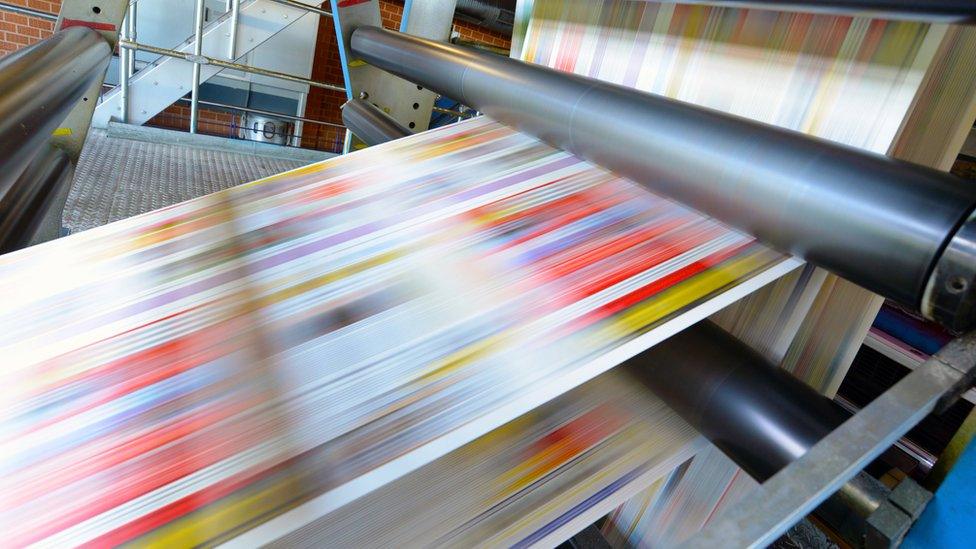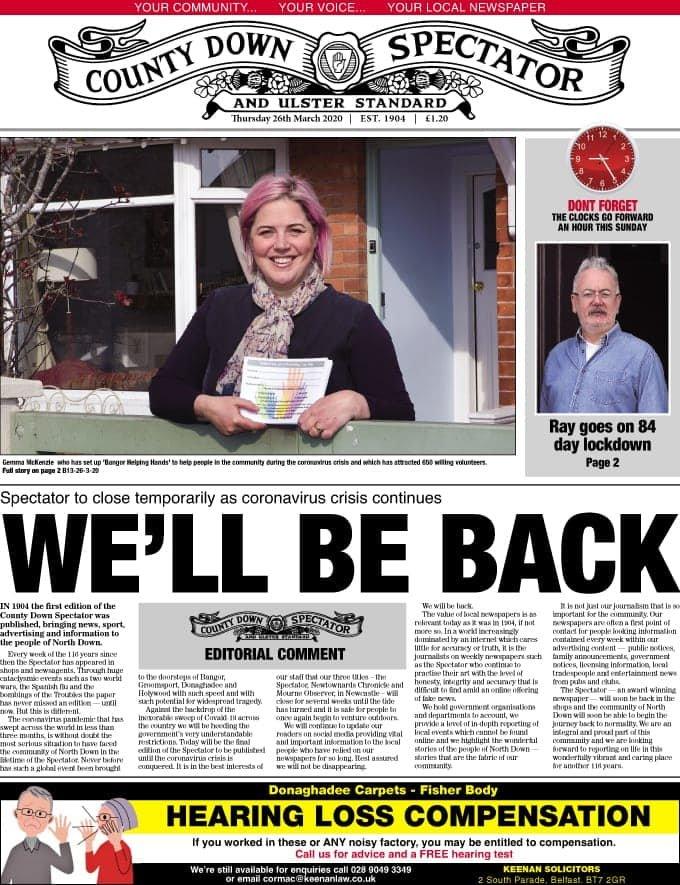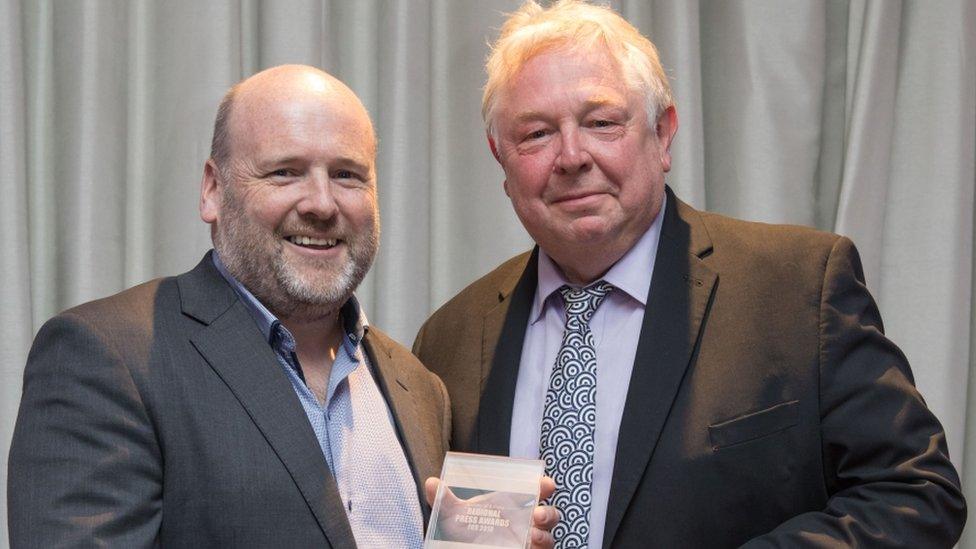Coronavirus poses new threat to local newspapers
- Published

The coronavirus crisis has piled more pressure on the local newspaper industry.
Many papers were already struggling to cope as print readerships fell along with advertising revenue.
But with people now unable to leave home to buy a paper, revenue has been hit even further.
Some companies have made redundancies and imposed pay reductions as they prepare for income shrinking.
Thursday was the first time in 116 years that the County Down Spectator was not published in print.
In a front page editorial, the newspaper called the coronavirus crisis: "The most serious situation to have faced the community of north Down in the lifetime of the Spectator."
"The value of local papers is as relevant today as it was in 1904, if not more so," it said.
"Rest assured we will not be disappearing. We will be back."

As well as the Spectator, some of the other papers which have paused production are:
the Newtownards Chronicle
the Mourne Observer
the Newry Reporter
the Banbridge Chronicle
Speaking on BBC NI's Good Morning Ulster, First Minister Arlene Foster said: "Journalism and television is so important at this point in time to give us the voice to be able to talk to people directly,"
Faced with commercial pressures, some companies have applied for the scheme which will see the government pay 80% of an employee's wage.
But for an employee to qualify they must be "furloughed" - stop work while being kept on the books.

Mary Burke said she'd had a lot of support
Photographer Mary K Burke lost her job at the Derry Post on Wednesday.
"As a freelancer, this is the precarious position you find yourself in," she said
"I've had a lot of support and well wishers but we are where we are and these are exceptional times. Many people in my family and community are in the same position.
'We're a rural paper with a loyal readership and we do our best to keep people in the community feeling connected - I hope we can get out the other side."
Media company Newsquest, one of the UK's biggest local news providers and owners of The Impartial Reporter, announced it intended to put a significant number of employees on leave.

Paul Welsh (left) receives a journalism award
Staff at Iconic Newspapers, which publishes 22 regional papers across the island of Ireland, have also been told that a number of journalists are to be laid off in April.
In a message to readers, Paul Welsh, editor of the Newry Reporter, said that the paper had been bringing local news to the public since 1867 and it has taken the spread of Covid-19 "to almost stop us in our tracks".
In the Republic of Ireland, Celtic Media Group, one of the country's largest local and regional newspaper organisations, said a number of staff would be laid off on a temporary basis during the coronavirus pandemic.
The Derry News is published by Iconic and managing editor Ciaran O'Neill said the company has been forced to lay off four staff members.
"Local papers are important and we want to continue publishing, but from a business point of view, it may come to a decision where it's not feasible," he said.
"Newspapers give you that sense of connection with the community and that's gone for a lot of people now."
In a message to readers, Paul Welsh, editor of the Newry Reporter, said that the paper had been bringing local news to the public since 1867 and it has taken the spread of Covid-19 "to almost stop us in our tracks".
Working from home
Kevin McLaughlin, sports reporter at the Derry Journal, said the newspaper would try to stay in publication despite the uncertainty.
"We have a fantastic archive that was largely stockpiled before the outbreak, but the problem is we don't know how long this will last," he said.
"We're all working from home and for the time being my alarm is still going off at 08:00.
"We're trying to keep things as routine as possible for now."
The National Union of Journalists (NUJ) said it had written to the taoiseach (Irish prime minister) about the situation in the Republic of Ireland.
In the wake of the announcement from Iconic, Séamus Dooley, NUJ Irish Secretary, said lay offs "should be a last resort".
"The amalgamation of editorial posts across titles and the diminution in editorial resources at a time when local communities need local newspapers could have damaging long term consequences for the titles," he said.
"We would have strong concerns for the health, safety and welfare of small teams left to produce titles in such adverse circumstances.
"Regional media provide an important public service and this should not be undermined."
'We've printed through the Famine'
Michael Scott, editor of the Ulster Gazette, said his sole focus was on getting the paper out.
"Smaller papers have to reflect what's going on in the community and there is more to the news than the virus," he said.
"We have been in print for 175 years. We printed through the Famine and our office has been blown up twice.
"We have never missed an issue, and we're not intending to now."
This article was updated on 9 April 2020 to include fresh information on newspaper closures.